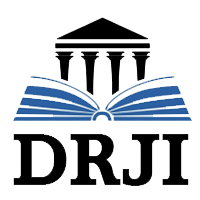Kepuasan Hidup Remaja Pondok Ditinjau dari Kelekatan pada Orang Tua dan Altruisme
Abstract
This study aims to determine the relationship between attachment to parent and altruism to life satisfaction in adolescent boarding schools simultaneously and separately and to find out how much the effective contribution is. The sample in this study amounted to 76 students and students at MTs / MA Al Burhan Semarang. This research uses a population study in which all subjects become the research sample. The scale used as a measuring tool in this study is the scale of life satisfaction, the scale of attachment to parent, and the scale of altruism. The results showed that the three variables simultaneously had a significant relationship between attachment to parents and altruism with life satisfaction. Simultaneously, attachment to parent and altruism gave an effective contribution of 20.7% to life satisfaction. Separately, attachment to parent has a significant relationship with life satisfaction and has an effective contribution of 11.5%. Meanwhile, altruism has a significant relationship with life satisfaction and has an effective contribution of 9.2% to life satisfaction. Therefore, all the hypotheses proposed in this study are accepted.
Penelitian ini bertujuan untuk mengetahui hubungan antara kelekatan pada orang tua dan altruisme terhadap kepuasan hidup pada remaja pondok secara simultan dan secara terpisah dan juga mencari tahu berapa sumbangan efektifnya. Sampel pada penelitian ini berjumlah 76 siswa dan siswa di MTs/ MA Al Burhan. Pada penelitian ini menggunakan studi populasi dimana semua subjek menjadi sampel penelitian. Skala yang digunakan sebagai alat ukur pada penelitian ini adalah skala kepuasan hidup, skala kelekatan pada orang tua dan skala altruisme. Hasil penelitian menunjukkan ketiga variabel secara simultan memiliki hubungan yang signifikan antara kelekatan pada orang tua dan altruisme dengan kepuasan hidup. Secara simultan kelekatan pada orang tua dan altruisme memberi sumbangan efektif sebesar 20,7% terhadap kepuasan hidup. Secara terpisah kelekatan pada orang tua memiliki hubungan yang signifikan dengan kepuasan hidup dan memiliki sumbangan efektif sebesar 11,5%. Sementara itu, altruisme memiliki hubungan yang signifikan dengan kepuasan hidup dan memiliki sumbangan efektif sebesar 9,2% terhadap kepuasan hidup. Maka dari itu semua hipotesis yang diajukan pada penelitian ini diterima.
Keywords
Full Text:
PDFReferences
Allen, J. P., Hauser, S. T., & Borman-Spurrell, E. (1996). “Attachment theory as a framework for understanding sequelae of severe adolescent psychopathology: an 11-year follow-up study.” Journal of Consulting and Clinical Psychology, 64(2), 254.
Arifin, J. (2017). SPSS 24 untuk penelitian dan skripsi. Elex Media Komputindo.
Armsden, G. C., & Greenberg, M. T. (1987). The inventory of parent and peer attachment: Individual differences and their relationship to psychological well-being in adolescence. Journal of Youth and Adolescence, 16(5), 427–454.
Baron, R. A., & Byrne, D. (2005). Psikologi sosial (10th ed.). Erlangga.
Bastiani, F. N. (2018). Hubungan kelekatan orangtua-remaja dengan kemandirian mahasiswa tahun pertama 2017 Fakultas Teknik Universitas Diponegoro. [Skripsi,tidak dipublikasi]. Universitas Diponegoro
Becchetti, L., Corrado, L., & Conzo, P. (2017). Sociability, altruism and well-being. Cambridge Journal of Economics, 41(2), 441–486. https://doi.org/10.1093/cje/bew033
Cava, M. J., Buelga, S., & Musitu, G. (2014). Parental communication and life satisfaction in adolescence. Spanish Journal of Psychology, 17(1). https://doi.org/10.1017/sjp.2014.107
Chan, W. Y., Ou, S. R., & Reynolds, A. J. (2014). Adolescent civic engagement and adult outcomes: An examination among urban racial minorities. Journal of Youth and Adolescence, 43(11), 1829–1843. https://doi.org/10.1007/s10964-014-0136-5
Chen, W., Zhang, D., Pan, Y., Hu, T., Liu, G., & Luo, S. (2017). Perceived social support and self-esteem as mediators of the relationship between parental attachment and life satisfaction among Chinese adolescents. Personality and Individual Differences, 108, 98–102. https://doi.org/10.1016/j.paid.2016.12.009
Coccia, C., Darling, C. A., Rehm, M., Cui, M., & Sathe, S. K. (2012). Adolescent health, stress and life satisfaction: The paradox of indulgent parenting. Stress and Health, 28(3), 211–221. https://doi.org/10.1002/smi.1426
Daravit, K. S. (2021). Hubungan antara kepuasan hidup dengan fear of missing out (fomo) pada mahasiswa fakultas psikologi uin malang pengguna media sosial [Skripsi, Universitas Islam Negeri Maulana Malik Ibrahim Malang]. Perpustakaan Universitas Islam Negeri Maulana Malik Ibrahim Malang. http://etheses.uin-malang.ac.id/27776/
Dariyo, A. (2018). Hubungan antara persahabatan dan kecerdasan emosi dengan kepuasan hidup remaja. Journal Psikogenesis, 5(2), 168. https://doi.org/10.24854/jps.v5i2.505
Diener, E., & Biswas-Diener, R. (2008). Happiness: Unlocking the mysteries of psychological wealth. Blackwell Publishing Ltd.
Diponegoro, A. M. (2010). Analisis faktor kepuasan hidup remaja. Phronesis (Misc), 6(12).
Doinita, N. E., & Maria, N. D. (2015). Attachment and parenting styles. Procedia - Social and Behavioral Sciences, 203, 199–204. https://doi.org/10.1016/j.sbspro.2015.08.282
Holmes, J. (2014). John Bowlby and attachment theory. In John Bowlby and Attachment Theory. https://doi.org/10.4324/9781315879772
Hool, K. (2011). Character strengths, life satisfaction and orientations to happiness a study of the Nordic countries. University of Bergen.
Jiang, X., Huebner, E. S., & Hills, K. J. (2013). Parent attachment and early adolescents’ life satisfaction: The mediating effect of hope. Psychology in the Schools, 50(4), 340–352. https://doi.org/10.1002/pits.21680
Krekels, G., & Pandelaere, M. (2015). Dispositional greed. Personality and Individual Differences, 74, 225–230. https://doi.org/10.1016/j.paid.2014.10.036
Kwan, Y. K. (2010). Life satisfaction and self-assessed health among adolescents in hong kong. Journal of Happiness Studies, 11(3), 383–393. https://doi.org/10.1007/S10902-009-9146-5
Laghi, F., Pallini, S., Baumgartner, E., Guarino, A., & Baiocco, R. (2016). Parent and peer attachment relationships and time perspective in adolescence: Are they related to satisfaction with life?. Time and Society, 25(1), 24–39. https://doi.org/10.1177/0961463X15577282
Lu, C., Jiang, Y., Zhao, X., & Fang, P. (2020). Will helping others also benefit you? Chinese adolescents’ altruistic personality traits and life satisfaction. Journal of Happiness Studies, 21(4), 1407–1425. https://doi.org/10.1007/s10902-019-00134-6
Lu, C., Liang, L., Chen, W., & Bian, Y. (2021). A way to improve adolescents’ life satisfaction: School altruistic group games. Frontiers in Psychology, 12. https://doi.org/10.3389/fpsyg.2021.533603
Lyons, M. D., Huebner, E. S., Hills, K. J., & Van Horn, M. L. (2013). Mechanisms of change in adolescent life satisfaction: A longitudinal analysis. Journal of School Psychology, 51(5), 587–598. https://doi.org/10.1016/J.JSP.2013.07.001
Lyons, M. D., Otis, K. L., Scott Huebner, E., & Hills, K. J. (2014). Life satisfaction and maladaptive behaviors in early adolescents. School Psychology Quarterly, 29(4), 553–566. https://doi.org/10.1037/spq0000061
Maddux, J. E. (2018). Subjective well- being and life satisfaction. In subjective well- being and life satisfaction. An Introduction to Conceptions, Theories, and Measures (pp. 3–31).
Myres, D. G. (2012). Psikologi sosial (10th ed.). Salemba Humanika.
Nurlaeni, & Juniarti, Y. (2017). Peran orang tua dalam mengembangkan kemampuan bahasa pada anak usia 4-6 tahun. Pelita PAUD, 2(1), 51–62. https://doi.org/10.33222/pelitapaud.v2i1.196
Özdemir, Y., & Koruklu, N. (2013). Parental attachment, school attachment and life satisfaction in early adolescence. Elementary Education Online, 12(3), 836–848.
Papalia, D. E., & Feldman, R. D. (2014). Menyelami perkembangan manusia buku 2 (12th ed.). Salemba Humanika.
Proctor, C., Linley, P. A., & Maltby, J. (2009). Youth life satisfaction: A review of the literature. Journal of Happiness Studies, 10(5), 583–630. https://doi.org/10.1007/S10902-008-9110-9
Proctor, C., Linley, P. A., & Maltby, J. (2016). Encyclopedia of adolescence. Encyclopedia of Adolescence. https://doi.org/10.1007/978-3-319-32132-5
Raharja, B. N., & Indati, A. (2019). Hubungan antara kebijaksanaan dengan kepuasan hidup pada remaja. Gadjah Mada Journal of Psychology (GamaJoP), 4(2), 96. https://doi.org/10.22146/gamajop.46354
Rahman, A. A. (2013). Psikologi sosial. PT Radja Grafindo Persada.
Sabar, R. (2007). Pengantar Metedologi Penelitian. FKIP: Universitas Muria Kudus.
Samuel, P., & Pandey, S. (2018). Life satisfaction and altruism among religious leaders. The International Journal of Indian Psychology, 6(1), 89–95.
Santrock, J. W. (2012). Life span development (Perkembangan masa hidup jilid 1) (13th ed.). Erlangga.
Siddall, J., Huebner, E. S., & Jiang, X. (2013). A prospective study of differential sources of school-related social support and adolescent global life satisfaction. American Journal of Orthopsychiatry, 83(1), 107–114. https://doi.org/10.1111/ajop.12006
Sugiyono, P. D. (2017). Metode penelitian bisnis: pendekatan kuantitatif, kualitatif, kombinasi, dan R&D. CV. Alfabeta.
Suharsimi, A. (2014). Prosedur Penelitian: Suatu Pendekatan Praktik. Rineka Cipta.
Syafe’i, I. (2017). Pondok pesantren: Lembaga pendidikan pembentukan karakter. Al-Tadzkiyyah: Jurnal Pendidikan Islam, 8(1), 61. https://doi.org/10.24042/atjpi.v8i1.2097
Tian, L., Chu, S., & Huebner, E. S. (2016). The chain of relationships among gratitude, prosocial behavior and elementary school students’ school satisfaction: The role of school affect. Child Indicators Research, 9(2), 515–532. https://doi.org/10.1007/s12187-015-9318-2
Upton, P. (2012). Psikologi perkembangan. Erlangga.
Wahyuni, E., & Maulida, I. (2019). Hubungan antara kepuasan hidup dan kesejahteraan psikologis pada siswa SMA Negeri se-Jakarta Pusat. INSIGHT: Jurnal Bimbingan Konseling, 8(2), 173–180. https://doi.org/10.21009/insight.082.08
Wei, M., Liao, K. Y., & Shafer, P. A. (2011). Attachment, self-compassion, empathy, and subjective well_being among college students and community adults. Journal of Personality, 79(1), 191–221. https://d;oi.org/10.1111/j.14676494.2010.00677.x.
Zhang, X., Chen, X., Ran, G., & Ma, Y. (2016). Adult children’s support and self-esteem as mediators in the relationship between attachment and subjective well-being in older adults. Personality and Individual Differences, 97, 229–233. https://doi.org/10.1016/j.paid.2016.03.062
DOI: https://doi.org/10.24176/perseptual.v8i1.7556
Refbacks
- There are currently no refbacks.

Jurnal Psikologi Perseptual (eISSN 2580-9520) is licensed under a Creative Commons Attribution-ShareAlike 4.0 International License














